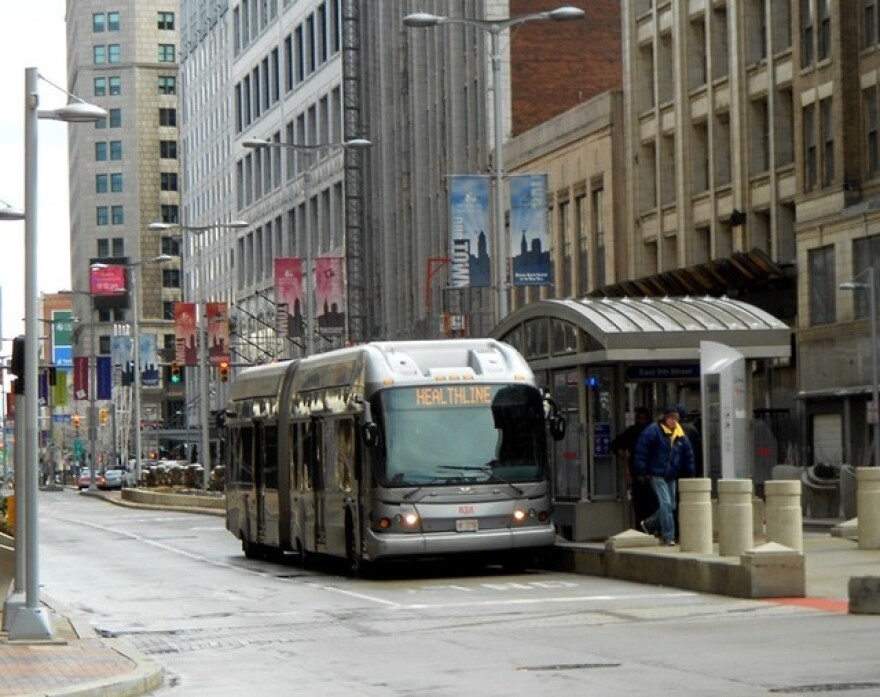My time at ideastream comes after four years abroad. I used public transit every day during time in Germany and Switzerland. I have taken the bus or rapid daily in Cleveland, too, and my experience has been mostly uneventful.
On my first day riding the bus I did encounter a fellow passenger who suddenly started to shout his grievances at white people. He was black and drunk - I was the only white guy on the bus. As I quietly headed for the exit, he hurled some choice expletives my way; the bus driver eventually told him to calm down.
None the worse for wear, though. I have been riding the bus since then, without trouble. And all of this was good preparation for my visit with the guy in charge, RTA CEO Joe Calabrese. We started by talking about, what else, safety, and what passengers can expect in uncomfortable situations.
CALABRESE: "We have designated our buses and trains Safe Places. So if any of the listeners there ever feel they are having an issue, they are afraid of their surroundings, then just simply find a bus or a train and we will get them to help. Back to procedures, there are procedures. Every bus, again, is equipped with cameras, and typically we don't encourage our operators to get in the middle of fights. We encourage them to summon the experts, summon transit police to come and intercept the vehicle. "
GANZER: "I know it's hard to assure somebody 100 percent that you're going to be safe all the time, but there have been high profile incidents-you had the bus driver a year ago who assaulted a passenger in an altercation. Do you re-evaluate what your employees have to do in those situations?"
CALABRESE: "We are one of the few transit authorities in the country with its own transit police force, certainly the only one in Ohio, and we do that so that our customers and our employees are the top priority. You know, there was a lot of publicity a year-and-a-half ago over 'the punch that went viral' from the bus operator that we terminated. And again we filed charges against her-it's not that she was right and he was wrong, they were both wrong. But as a result each of our drivers have gone through a special training, and the key is how do you defuse a potentially hostile situation and not aggravate it."
The talk with Calabrese was wide-ranging, looking at issues from the recession and cutbacks to RTA lines, to recent growth the system has seen, and what that all means.
CALABRESE: "You need mass, you need a lot of people going from the same place, to the same place, at roughly the same time, for public transit to work. And unfortunately the way our region developed, without migration, that becomes more and more difficult. But the good news is, I think that it's coming back. Ridership is up for the third year in a row."
GANZER: "Why do you think the system is growing where it's growing? Overall ridership numbers are increasing, but, you pointed out, it's not because of any general population increase. Do you have any ideas on that?"
CALABRESE: "I think there's a couple reasons. I think even though we're not seeing a population increase, or a job increase overall, I think downtown is doing very, very well. Businesses are moving into downtown. The second part is, we're seeing a generational change. It was my generation, you know, born in the 50s, who the first things are parents did was move out to the suburbs, and bought one car, then two cars. And public transit wasn't even in the equation, which is very different from my kids today who say 'we believe in public transit' and 'we want to use public transit.' The generation that the greater Cleveland area needs to retain and attract really is much more public transit oriented.”




